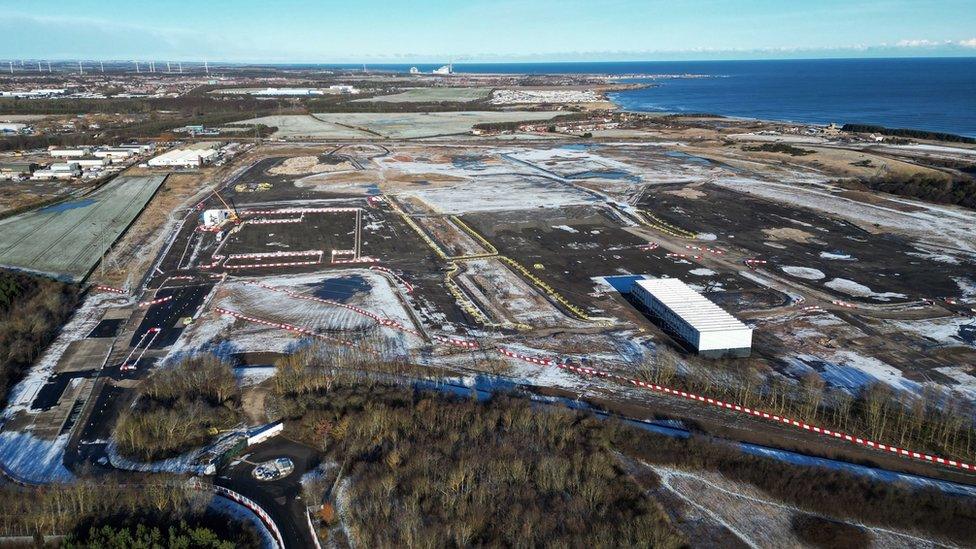Jobs at risk over insufficient electric vehicle battery production in UK
- Published
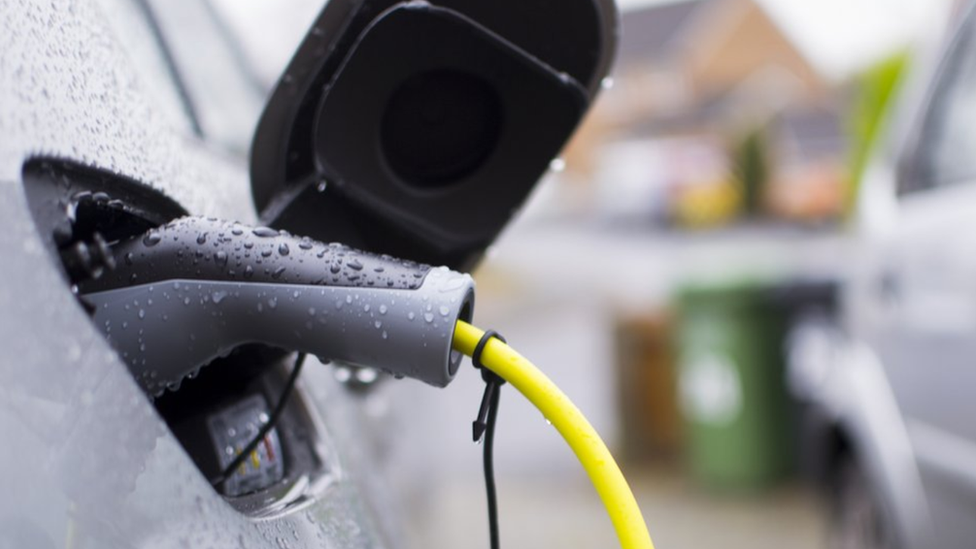
The report warns the UK is facing a 'gigafactory gap'
Hundreds of thousands of jobs could be at risk if electric vehicle (EV) battery production in the UK does not increase, cross-party MPs have warned.
Decisive action is needed to attract investment in UK gigafactories, warns the Business and Trade Committee.
Their report forecast the UK will need 100GWh (gigawatt hours) of battery manufacturing capacity by 2030.
The UK's only existing gigafactory, the Nissan-owned Envision AESC in Sunderland, has 2GWh of capacity.
According to the group of MPs, the UK is on course to produce around half the battery capacity likely to be required in future by the UK's domestic car industry alone.
"Satisfying demand from the UK's automotive industry and other sectors will require 100GWh (Gigawatt hours) of battery manufacturing capacity by 2030," the report states.
"That requirement will increase to 200GWh by 2040.
"At best, announced plans satisfy a little over half the capacity the nation needs by 2030."
Failure to attract more investment could lead to a decline in the UK car industry, potentially putting hundreds of thousands of jobs at risk, say MPs.
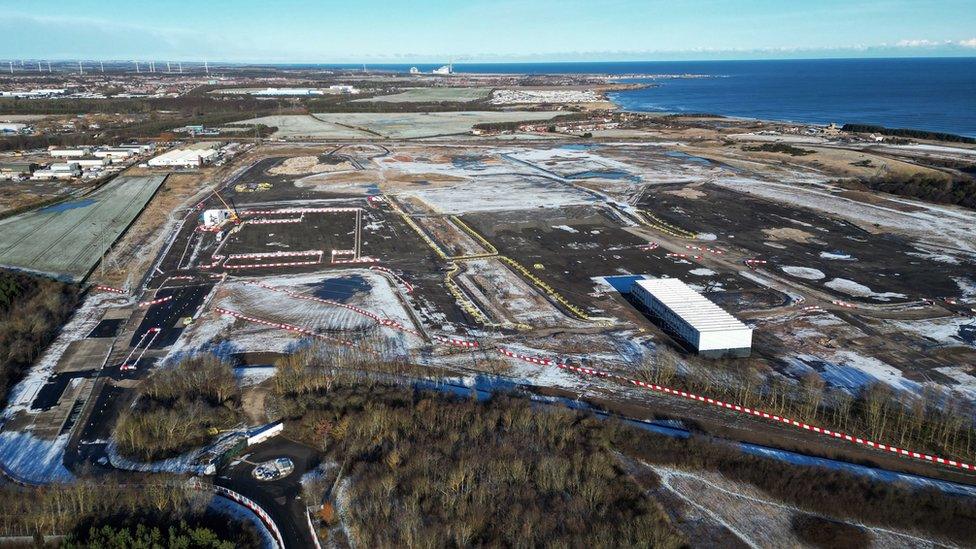
Gigafactory start-up Britishvolt, which owned a site in Northumberland, went bust in January
Many of the world's gigafactories, where batteries are produced, are currently in China.
Labour MP Liam Byrne, who chairs the committee, said: "We risk the industry simply relocating to Europe or the US or becoming reliant on imports from China and elsewhere.
"That imperils 160,000 jobs and a jewel in the UK's industrial crown. Now is the time to act."
The parliamentary committee contends the UK could become a "frontrunner" in building "sustainable and ethical batteries".
The government has said new funding for the UK car industry and battery production will be unveiled later this week.
A Department for Business and Trade spokesperson said: "In the past few months, the government has secured a £4bn investment from Tata in a new gigafactory, and £600m to build the next generation of electric Minis.
"Later this week we will publish a wide-ranging Advanced Manufacturing Plan and the UK's first Battery Strategy, both of which will ensure we continue to place the UK at the forefront of global supply chains."
In 2021, Nissan announced a major expansion of electric vehicle production at the plant in Sunderland as part of a £1bn investment.
Last year, the factory launched its own onsite EV battery assembly line for the electric version of the Qashqai and Juke, two of the plant's most successful models.

Follow BBC North East & Cumbria on X (formerly Twitter), external, Facebook, external and Instagram, external. Send your story ideas to northeastandcumbria@bbc.co.uk, external.
Related topics
- Published16 November 2023
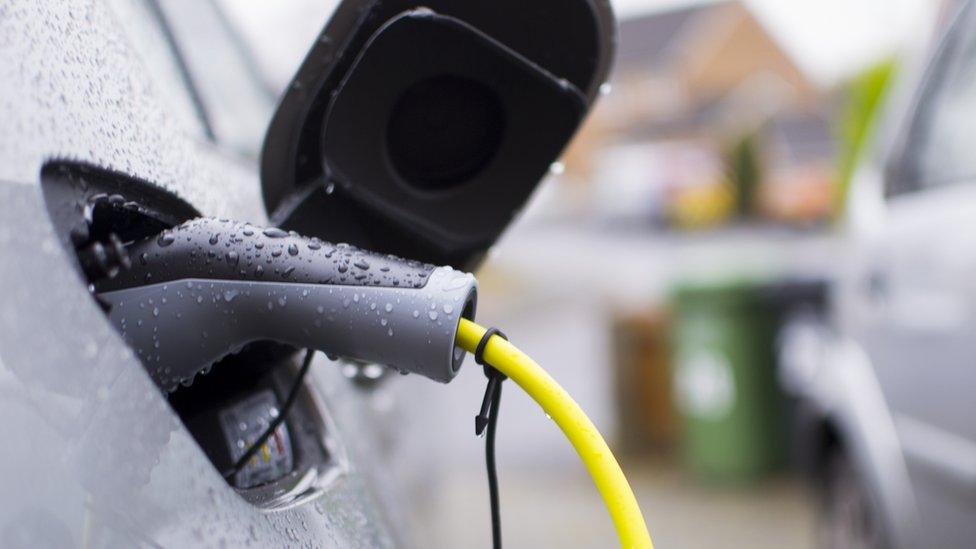
- Published25 September 2023
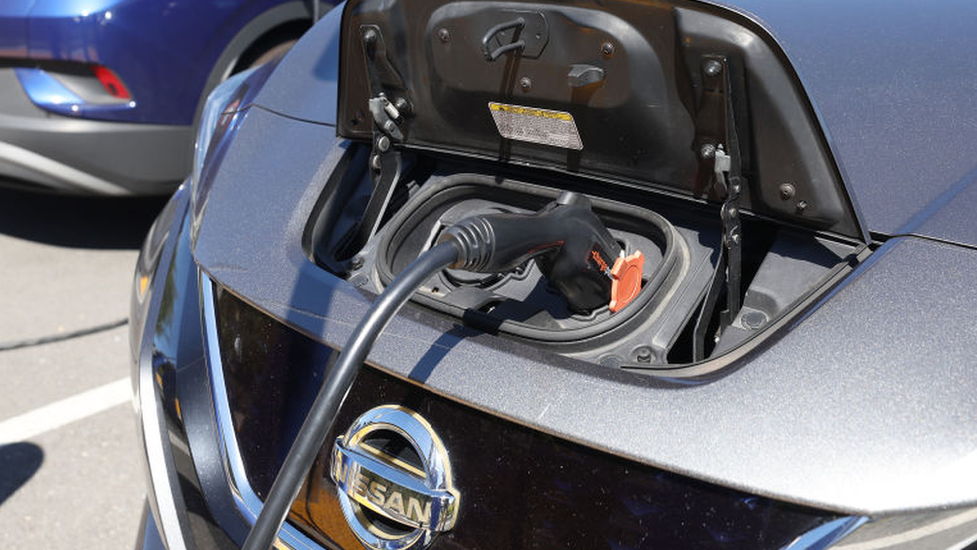
- Published11 September 2023
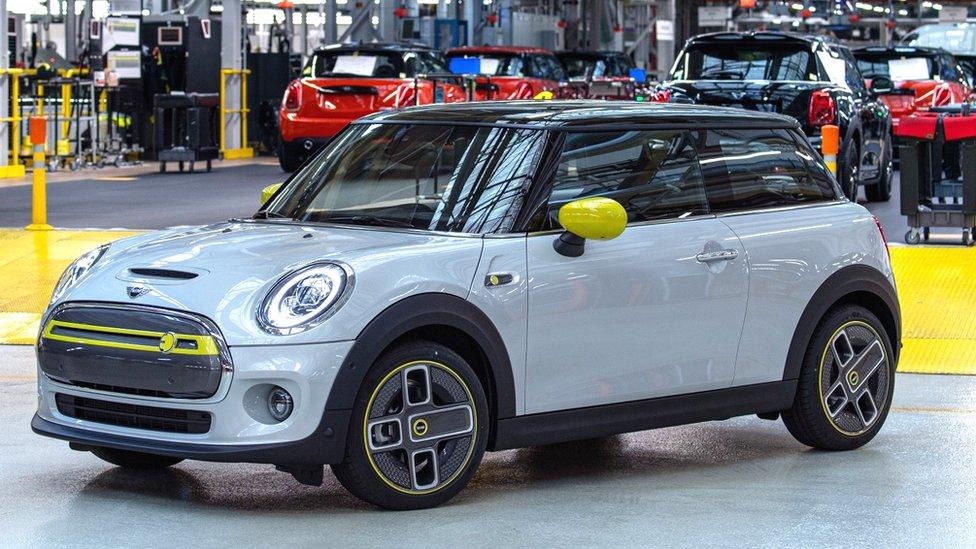
- Published28 April 2023
